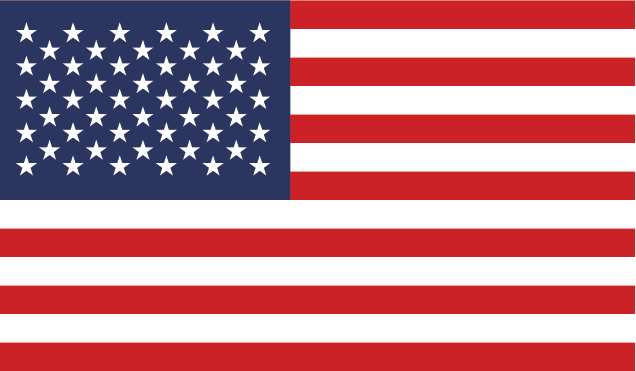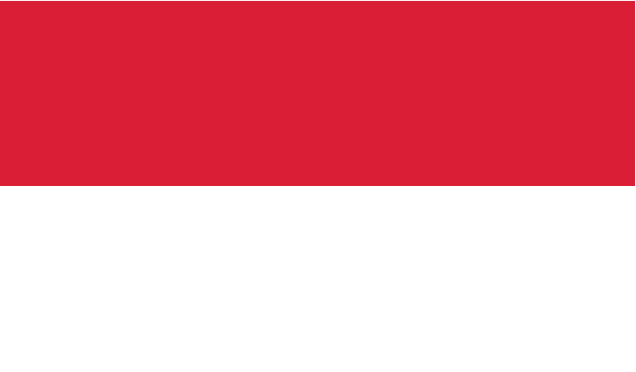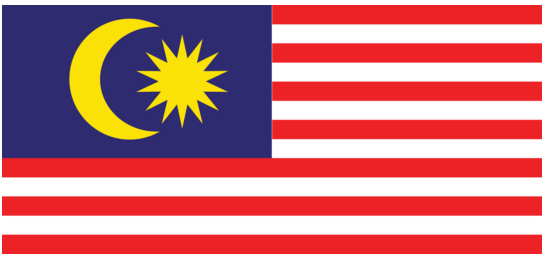
JS-SEZ Incentives for Startups (Guide)
JS-SEZ startup incentives
Introduction to JS-SEZ: Malaysia's Cross-Border Economic Hub
The Johor-Singapore Special Economic Zone (JS-SEZ) represents a landmark bilateral initiative between Malaysia and Singapore, designed to deepen economic integration and attract global investment. Spanning 3,571 square kilometers across southern Johor—approximately four times the size of Singapore—the zone encompasses nine flagship areas, including the Iskandar Development Region, Forest City Special Financial Zone, and Pengerang Integrated Petroleum Complex15. This strategic location leverages Johor’s proximity to Singapore, creating a seamless cross-border ecosystem that combines Malaysia’s abundant land and labor resources with Singapore’s financial capital and technological expertise2.
Strategic Objectives and Sector Focus
The JS-SEZ aims to strengthen bilateral trade, which reached S$123.6 billion in 2023, and position the region as a global hub for high-value industries1. Key sectors include:
- Manufacturing: Targeting advanced industries like semiconductors and aerospace.
- Renewable Energy: Promoting clean energy projects and green economy initiatives.
- Digital Economy: Developing data centers and AI-driven technologies.
- Logistics and Tourism: Enhancing cross-border connectivity and regional tourism networks15.
Cross-Border Synergies and Infrastructure
The zone prioritizes simplified customs processes and passport-free QR code clearance to ease the movement of goods and people, reducing congestion at checkpoints1. This aligns with Johor’s broader vision to become Malaysia’s most developed state, supported by infrastructure upgrades and workforce development programs like the Johor Talent Development Council3.
Geopolitical and Economic Rationale
By integrating Johor’s industrial capacity with Singapore’s financial muscle, the JS-SEZ addresses both nations’ complementary needs. Malaysia gains access to Singaporean investment and expertise, while Singapore secures cost-effective production bases and expanded market access2. The initiative also counters global economic uncertainties by fostering regional resilience, mirroring earlier successes like Indonesia’s Batam Industrial Park2.
This collaborative framework sets the stage for Johor to emerge as a regional innovation hub, particularly in advanced sectors like AI and renewable energy, while reinforcing Malaysia-Singapore ties as a model for cross-border economic cooperation15.
Tax Incentives for Startups in JS-SEZ
The Johor-Singapore Special Economic Zone (JS-SEZ) offers a structured tax incentive framework designed to attract startups and high-growth businesses. These incentives target priority sectors like manufacturing, digital economy, renewable energy, and advanced technologies, aligning with Malaysia’s vision to position Johor as a regional innovation hub14. Below is a detailed breakdown of the tax benefits and eligibility criteria for startups:
Corporate Tax Rates
Startups in priority sectors (e.g., AI, quantum computing, medical devices, aerospace manufacturing) qualify for a 5% corporate tax rate for up to 15 years if they establish or expand operations in JS-SEZ1. This reduced rate applies to both new investments and existing companies expanding their footprint. For example:
- Manufacturing: Companies investing in advanced industries like semiconductors or aerospace qualify for the 5% rate.
- Digital Economy: Startups in data centers, blockchain, or AI-driven services also benefit.
- Renewable Energy: Projects in solar, wind, or green hydrogen production are eligible.
Global Services Hubs (e.g., financial services, logistics) receive the same 5% rate for 15 years if they establish regional or global headquarters in JS-SEZ1.
Knowledge Worker Tax Incentives
Startups hiring highly skilled professionals (e.g., engineers, data scientists, tech specialists) can offer their employees a 15% personal income tax rate for up to 10 years1. This incentive applies to knowledge workers earning above a threshold (exact figures pending official guidelines) and is designed to attract talent in sectors like AI, fintech, and green energy.
Investment Tax Allowances
Startups meeting capital investment thresholds (e.g., RM500 million for manufacturing) may qualify for additional tax allowances, including:
- Accelerated depreciation on machinery and equipment.
- Tax exemptions on imported raw materials or equipment for specific sectors1.
Eligibility Criteria
To qualify, startups must:
- Invest in priority sectors: Focus on high-value industries like advanced manufacturing, digital economy, or renewable energy.
- Meet capital thresholds: Minimum investments vary by sector (e.g., RM500 million for manufacturing).
- Adhere to employee composition rules: A percentage of the workforce must be Malaysian citizens or residents.
- Comply with sector-specific requirements: For example, renewable energy projects must align with Malaysia’s green economy goals1.
Sector-Specific Requirements
| Sector | Key Requirements |
|---|---|
| Manufacturing | Minimum RM500 million investment; focus on advanced industries (e.g., aerospace). |
| Digital Economy | Develop AI, blockchain, or data center projects; prioritize regional/global hubs. |
| Renewable Energy | Align with Malaysia’s National Energy Transition Plan (e.g., solar, green hydrogen). |
| Global Services | Establish regional/global headquarters in JS-SEZ flagship zones. |
Long-Term Benefits
The incentives aim to reduce operational costs, attract global talent, and foster innovation. For instance, the 15% knowledge worker tax rate helps startups compete for skilled professionals in competitive markets like AI and fintech1. Similarly, the 5% corporate tax rate lowers financial barriers for startups scaling operations in high-capital sectors like renewable energy3.
Transition to Next Section
With these incentives in place, startups must navigate eligibility criteria to unlock benefits. The next section details the step-by-step process for applying to JS-SEZ programs, including documentation requirements and deadlines.
Eligibility Criteria for JS-SEZ Incentives
To qualify for JS-SEZ tax incentives, startups must meet sector-specific requirements, capital investment thresholds, and operational guidelines tailored to Malaysia’s economic priorities. Below is a structured breakdown of eligibility criteria, including distinctions between new investments and existing companies expanding operations within the zone.
Core Eligibility Requirements
-
Sector Alignment
Startups must operate in priority sectors such as:- Manufacturing: Advanced industries (e.g., semiconductors, aerospace, medical devices).
- Digital Economy: AI, quantum computing, blockchain, data centers.
- Renewable Energy: Solar, wind, green hydrogen, or projects aligned with Malaysia’s National Energy Transition Plan.
- Global Services: Financial services, logistics, or regional/global headquarters1.
-
Capital Investment Minimums
- Manufacturing: Minimum RM500 million investment for new projects.
- Digital Economy: No fixed capital threshold, but projects must demonstrate scalability and innovation (e.g., AI-driven solutions).
- Renewable Energy: Investments must align with green economy goals, though specific thresholds are pending official guidelines1.
-
Employee Composition Rules
Startups must ensure a percentage of their workforce comprises Malaysian citizens or residents, though exact ratios are yet to be finalized. This rule aims to foster local talent development and job creation1.
- Sector-Specific Conditions
- Manufacturing: Projects must focus on high-value exports or domestic supply chains.
- Renewable Energy: Must contribute to Malaysia’s sustainability targets (e.g., carbon reduction, energy diversification).
- Global Services: Companies must establish regional or global hubs within JS-SEZ flagship zones1.
Differences Between New and Existing Companies
| Aspect | New Investments | Existing Companies Expanding |
|---|---|---|
| Tax Rate | 5% corporate tax for up to 15 years[1][3]. | Same 5% rate if expanding operations. |
| Capital Requirements | Sector-specific thresholds (e.g., RM500M for manufacturing)[1]. | No minimum investment, but must expand capacity. |
| Sector Flexibility | Can choose any priority sector. | Must align with existing sector focus. |
| Knowledge Worker Incentives | Eligible for 15% personal income tax for employees[1]. | Same eligibility if hiring new skilled workers. |
Additional Considerations
- Geographic Focus: Startups must operate within JS-SEZ flagship zones (e.g., Iskandar Development Region, Forest City)1.
- Regulatory Compliance: Adherence to Malaysia’s New Industrial Master Plan 2030 and environmental standards4.
- Timeline: Incentives apply to projects initiated between 2025–2034, with phased implementation3.
By meeting these criteria, startups can unlock tax benefits, talent retention programs, and infrastructure support, positioning them as key drivers of Johor’s economic transformation1.
Transition to Next Section: With eligibility criteria clarified, the next section outlines the streamlined application process for startups to secure JS-SEZ incentives, including documentation requirements and submission deadlines.
Application Process for JS-SEZ Incentives
To secure tax benefits under the Johor-Singapore Special Economic Zone (JS-SEZ), startups must navigate a streamlined application process managed by MIDA (Malaysian Investment Development Authority). Below is a step-by-step guide to applying for incentives, including documentation requirements and key deadlines:
Step 1: Prepare Documentation
Startups must submit the following materials via MIDA’s online portal (investmalaysia.mida.gov.my):
- Business Plan: Detailed proposal outlining sector alignment (e.g., AI, renewable energy), capital investment, and workforce composition.
- Financial Projections: Proof of funding capacity, including capital commitments (e.g., RM500 million for manufacturing).
- Sector-Specific Proof: Documentation demonstrating eligibility for priority sectors (e.g., patents for tech startups, sustainability certifications for green energy projects).
- Employee Composition: Evidence of local talent hiring (e.g., contracts, payroll records).
- Flagship Zone Confirmation: Proof of operations within designated JS-SEZ areas (e.g., Iskandar Development Region).
Step 2: Submit Application via MIDA's Portal
- Register on MIDA’s Platform: Create an account on investmalaysia.mida.gov.my and access the JS-SEZ incentive section.
- Fill Application Form: Provide business details, sector focus, and investment figures.
- Upload Documents: Attach required files securely.
- Review and Submit: Ensure accuracy before final submission.
Key Deadlines and Submission Tips
- Application Window: Open for projects initiated between 2025–2034, with phased implementation1.
- Sector-Specific Deadlines: Manufacturing projects must meet RM500 million thresholds by 2030 to qualify for 15-year tax benefits1.
- Submission Tips:
- Align proposals with Malaysia’s New Industrial Master Plan 2030 and green economy goals.
- Highlight cross-border synergies (e.g., partnerships with Singaporean firms).
- Address workforce localization rules upfront to avoid delays.
Support Contacts
For assistance, contact:
- MIDA's JS-SEZ Desk: Direct inquiries to MIDA’s dedicated team for sector-specific guidance.
- Johor State Government: Liaise with local authorities for flagship zone approvals.
- Singaporean Trade Agencies: Collaborate with Singapore’s Economic Development Board (EDB) for cross-border coordination.
This process ensures startups efficiently access incentives while meeting Malaysia’s economic priorities. For deeper insights, refer to MIDA's official guidelines or consult regional trade agencies.
Transition to Next Section: With the application process outlined, the next section explores the long-term benefits of JS-SEZ incentives, including cost reductions and talent retention strategies.
Benefits of JS-SEZ Incentives for Startups
The Johor-Singapore Special Economic Zone (JS-SEZ) tax incentives offer startups a transformative pathway to reduce operational costs, attract global talent, and enhance competitiveness in high-growth sectors. By aligning with Malaysia’s economic priorities, these benefits position JS-SEZ as a catalyst for long-term innovation and regional leadership.
Reducing Operational Costs
Startups in priority sectors (e.g., AI, renewable energy, advanced manufacturing) qualify for a 5% corporate tax rate for up to 15 years1. This significantly lowers financial barriers for capital-intensive projects, enabling reinvestment in R&D, infrastructure, and expansion. For example:
- Manufacturing startups investing in semiconductors or aerospace can allocate savings to cutting-edge machinery or workforce training.
- Digital economy ventures (e.g., blockchain, quantum computing) benefit from reduced tax burdens, accelerating scalability in competitive markets.
The incentives also include accelerated depreciation allowances and tax exemptions on imported equipment, further easing cash flow pressures for early-stage companies1.
Attracting and Retaining Talent
JS-SEZ’s 15% personal income tax rate for knowledge workers (e.g., engineers, data scientists) creates a competitive edge in talent acquisition1. This incentive applies to professionals earning above a threshold (exact figures pending) and lasts up to 10 years, ensuring startups can retain skilled employees in high-demand fields like AI and fintech.
For instance, a quantum computing startup hiring a team of researchers could offer this tax benefit, reducing attrition risks and fostering long-term collaboration. The zone’s focus on cross-border talent mobility—via simplified customs and passport-free QR code clearance—enhances access to Singapore's skilled workforce, further strengthening talent pipelines1.
Enhancing Competitiveness
By prioritizing high-value sectors, JS-SEZ incentives drive innovation and global market penetration. Startups in renewable energy (e.g., green hydrogen) or advanced manufacturing gain cost advantages, enabling them to undercut competitors in pricing and scalability. For example:
- AI-driven startups can leverage tax savings to invest in proprietary algorithms or partnerships with global tech firms.
- Renewable energy ventures benefit from exemptions on imported equipment, accelerating project timelines and reducing carbon footprints.
The zone’s 9 flagship areas (e.g., Iskandar Development Region, Forest City) provide sector-specific infrastructure, such as high-speed data networks and R&D hubs, further boosting operational efficiency2.
Long-Term Value: Projections and Impact
JS-SEZ is projected to contribute RM117.1 billion to Malaysia’s GDP by 2030 and create over 20,000 high-skilled jobs in advanced technology and creative industries3. These projections underscore the incentives’ role in fostering economic resilience and regional leadership.
For startups, this translates to:
- Stable talent ecosystems: Retaining skilled workers ensures continuity in innovation.
- Scalable infrastructure: Flagship zones offer pre-built facilities for rapid expansion.
- Global market access: Cross-border synergies with Singapore enhance export capabilities and investor appeal.
Sector-Specific Advantages
| Sector | Key Benefits |
|---|---|
| Manufacturing | 5% corporate tax rate + accelerated depreciation for machinery[1][3]. |
| Digital Economy | Tax exemptions on imported AI/data center equipment; access to high-speed networks[1][3]. |
| Renewable Energy | Tax breaks on green hydrogen/solar projects; alignment with Malaysia’s sustainability goals[1][3]. |
| Global Services | 15-year tax rate for regional HQs; streamlined customs for cross-border operations[1][2]. |
Transition to Future Outlook
With these incentives in place, startups are poised to drive JS-SEZ’s transformation into a regional innovation hub. The next section explores future opportunities and challenges, including infrastructure scalability and talent retention strategies.
Summary: JS-SEZ incentives reduce operational costs, attract global talent, and enhance competitiveness through targeted tax benefits and sector-specific infrastructure. Projections highlight its transformative potential, positioning Malaysia as a leader in advanced industries.
Future Outlook and Challenges for JS-SEZ Startups
The Johor-Singapore Special Economic Zone (JS-SEZ) presents startups with transformative opportunities but also faces hurdles that demand strategic navigation. Below is an analysis of growth prospects, potential obstacles, and actionable strategies for startups to maximize the zone’s incentives:
Growth Opportunities
- Renewable Energy Partnerships: Startups in green hydrogen, solar, or wind energy can align with Malaysia’s National Energy Transition Plan and leverage JS-SEZ’s focus on sustainability3. Collaborations with global firms in the zone’s flagship areas (e.g., Pengerang Integrated Petroleum Complex) could accelerate project scalability.
- Cross-Border Innovation: The zone’s QR code clearance systems and streamlined customs processes enhance access to Singapore’s tech talent and markets1. Startups in AI, blockchain, or fintech can exploit these synergies to expand regionally.
- Sector-Specific Infrastructure: Flagship zones like Iskandar Development Region offer advanced digital networks (5G, IoT) and R&D hubs, enabling startups in quantum computing or medical devices to innovate rapidly3.
Key Challenges
- Infrastructure Delays: While JS-SEZ aims to upgrade transport and logistics, delays in flagship zone development (e.g., Forest City) could hinder early-stage operations1.
- Talent Retention: Despite the 15% knowledge worker tax incentive, startups may struggle to retain skilled professionals in competitive sectors like AI due to global demand1.
- Regulatory Complexity: Navigating Malaysia’s New Industrial Master Plan 2030 and Singapore’s compliance frameworks requires meticulous planning to avoid delays3.
Actionable Strategies for Startups
- Leverage Tax Incentives: Prioritize sectors like renewable energy or advanced manufacturing to qualify for the 5% corporate tax rate and accelerated depreciation allowances1.
- Form Cross-Border Partnerships: Collaborate with Singaporean firms to access funding, expertise, and markets, especially in digital economy and logistics2.
- Invest in Talent Development: Partner with Johor Talent Development Council programs to build local expertise and reduce reliance on imported skills3.
- Engage with Flagship Zones: Target areas like Sedenak or Tanjung Pelepas-Tanjung Bin for sector-specific infrastructure (e.g., logistics hubs) and streamlined approvals2.
By addressing these challenges proactively, startups can position themselves as pioneers in JS-SEZ’s high-growth ecosystem, driving innovation while securing long-term viability.
Transition to Conclusion: With these strategies in place, the next section will summarize how JS-SEZ’s incentives and collaborative frameworks position Malaysia as a global innovation leader.
Discover the Power of PONGO TECH: Elevate Your Startup Success
Revolutionize Your Marketing with PONGO TECH
PONGO TECH, known as a leader in digital marketing and e-commerce solutions, is here to complement the efforts of startups in the JS-SEZ. By tapping into PONGO’s local expertise and advanced strategies, startups can fully leverage the compounded benefits of JS-SEZ incentives, propelling their growth and market presence even further.
Why Collaborate with PONGO?
With a robust team of digital marketing professionals and a proven track record across Southeast Asia, PONGO TECH stands out with its innovative use of data-driven marketing, influencer networks, and localized content production. Renowned brands like JDID and TCL trust PONGO's ability to transform their international campaigns with precision and creativity.
Solving Your Startup Challenges
PONGO TECH offers customized marketing solutions that echo the needs and aspirations of startups operating within the JS-SEZ. Whether you need expert assistance in live commerce, influencer collaborations, or enhancing customer engagement, our tailored strategies ensure your business stays ahead in the competitive landscape.
Take the Next Step with Us
Ready to elevate your startup’s potential and tap into the expansive Southeast Asian market? Partner with PONGO TECH for unparalleled marketing solutions. Contact us to learn more and begin your journey with PONGO today!
 English
English 



